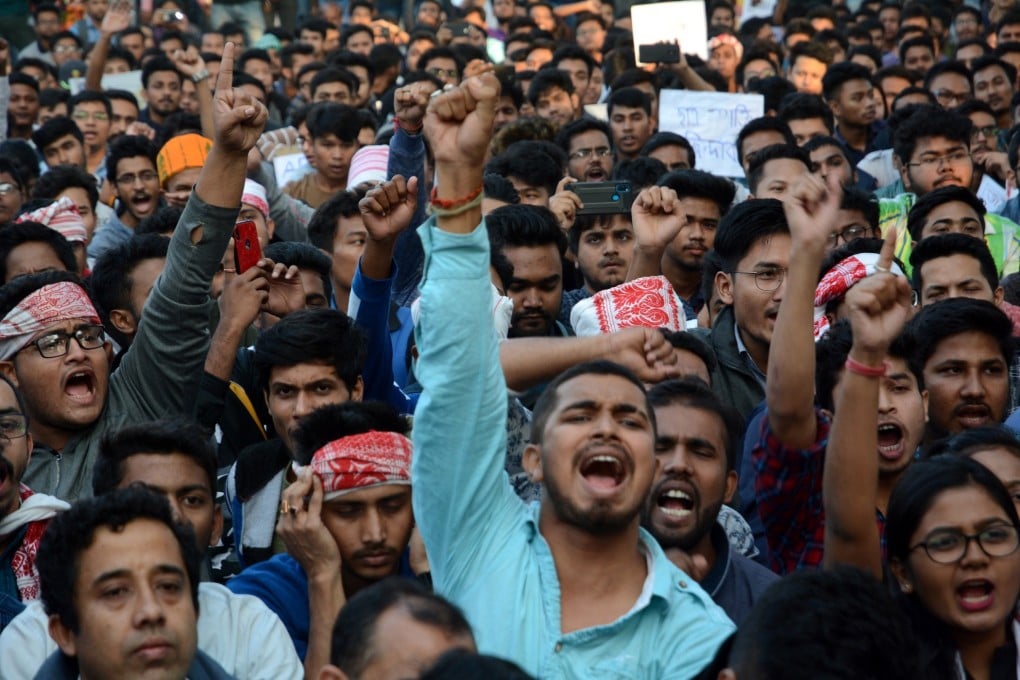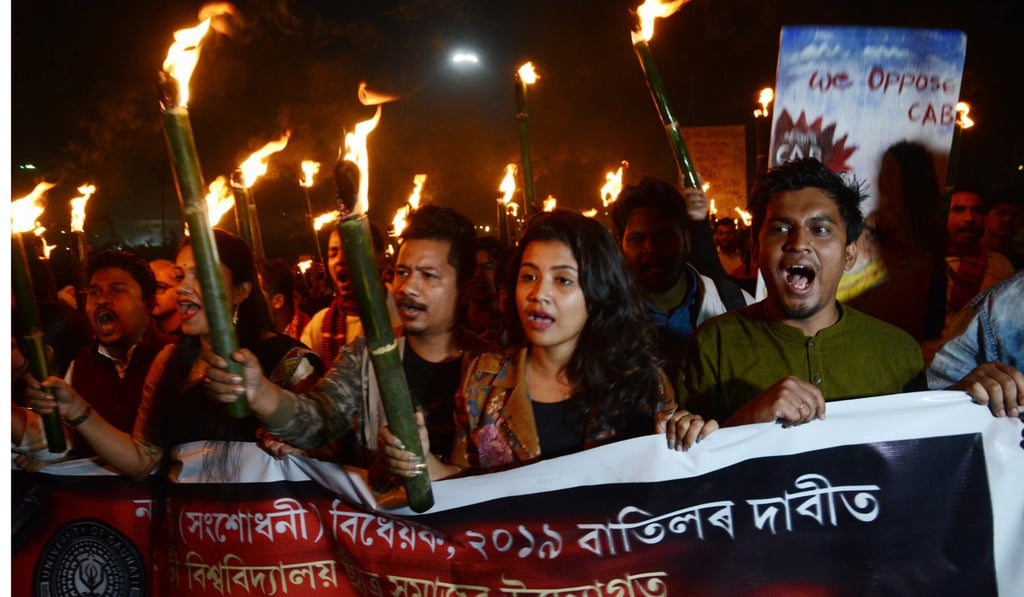Advertisement
In India, protests over new citizenship bill as Muslims fear further persecution
- The law, known as the citizenship amendment bill (CAB) grants citizenship to non-Muslim migrants from neighbouring countries who entered India illegally
- A politician says it’s a clear attempt to disenfranchise Muslims, and what happened in Nazi Germany will not be allowed in India
Reading Time:3 minutes
Why you can trust SCMP

The road outside Cotton University in Guwahati, the capital of India’s north-eastern Assam state, was filled with thick smoke from burning tyres on Monday and Tuesday as hundreds of students protested against India’s new citizenship amendment bill.
The bill aims to grant citizenship to persecuted Hindus and other religious minorities from Muslim-majority neighbouring countries such as Pakistan, Bangladesh and Afghanistan who entered India illegally, but not to Muslims.
It was passed by a majority vote in India’s lower house on Monday night, but to become law it still needs to be approved by the upper house where Prime Minister Narendra Modi’s Hindu nationalist Bharatiya Janata Party lacks a majority.
Advertisement
Its passage through parliament has prompted widespread criticism, with activists saying the proposed law goes against the constitutional guarantee of legal equality to people of all faiths.

Advertisement
A federal panel on religion has urged the United States to sanction India’s Home Minister Amit Shah if it passes.
Advertisement
Select Voice
Choose your listening speed
Get through articles 2x faster
1.25x
250 WPM
Slow
Average
Fast
1.25x